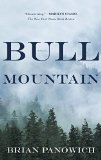Summary | Excerpt | Reading Guide | Reviews | Beyond the Book | Read-Alikes | Genres & Themes | Author Bio

This article relates to Bull Mountain
In Bull Mountain, one of the main characters is a special agent for the Bureau of Alcohol, Tobacco, Firearms and Explosives, commonly known as the ATF.
 The ATF website states the organization is the oldest tax-collection agency in the United States. It was initially part of the U.S. Treasury and traces its roots back to 1789, when Congress voted to impose a tax on imported spirits to help pay debts left over from the Revolutionary War (at the time, there was no income tax, and so excise taxes such as this one were the primary means of generating funds for the government, and the Treasury Department was responsible for the collection of this revenue). During the Civil War years, Congress also authorized additional taxes on both alcohol and tobacco, and created the Office of Internal Revenue under the Treasury Department to enforce the tax laws and prosecute individuals for tax evasion.
The ATF website states the organization is the oldest tax-collection agency in the United States. It was initially part of the U.S. Treasury and traces its roots back to 1789, when Congress voted to impose a tax on imported spirits to help pay debts left over from the Revolutionary War (at the time, there was no income tax, and so excise taxes such as this one were the primary means of generating funds for the government, and the Treasury Department was responsible for the collection of this revenue). During the Civil War years, Congress also authorized additional taxes on both alcohol and tobacco, and created the Office of Internal Revenue under the Treasury Department to enforce the tax laws and prosecute individuals for tax evasion.
On January 19, 1919, Congress ratified the 18th Amendment to the U.S. Constitution, which banned the manufacture, sale and transport of alcohol. Although the act did reduce the consumption of alcohol in the United States, it also caused a rise of criminal gangs and increased violence as gangsters sought to make a profit through illegal sales. This led to the creation of the Bureau of Prohibition in 1927, a veritable army structured to fight organized crime. It was responsible for enforcing the ban on alcohol and was transferred from the Treasury to the Department of Justice in 1930 as the priority shifted away from revenue collection.
When Prohibition ended in 1933, the Bureau of Prohibition was transferred back to the Treasury and renamed the Alcohol Tax Unit (ATU). Enforcement of newly enacted federal gun laws became the responsibility of the ATU in 1941, with tobacco laws being added during the 1950s. Firearm regulations increased during the 1960s and 1970s, and laws regarding "destructive devices" such as bombs, mines and grenades were added to the federal restrictions. The ATU was reorganized into the Alcohol and Tobacco Tax Division (ATTD) and given additional jurisdiction for enforcing the weapons laws. The department was christened the Bureau of Alcohol, Tobacco and Firearms (ATF) two years later.
In 2003 control of the ATF reverted back to the Justice Department, and the bureau has assumed more responsibility for investigation of criminal activity (it was the main agency in charge of investigating the Boston Marathon bombing in 2013, for example). Its current roles and responsibilities include:
With an annual budget of $1.17 billion, the ATF employs approximately 4,800 people (2014), about half of whom are Special Agents. These individuals are considered to have some of the broadest authority of any federal agency, and all Special Agents are required to have top secret security clearance. They must pass vigorous background checks, physical fitness tests and medical exams, and must complete a rigorous 27-week training program (a longer training program than required by either the FBI or DEA); only about 5% of those who apply are eventually hired.
In addition to conducting criminal investigations, they are chartered to defend the United States against international and domestic terrorism, and to work with state and local police to reduce violent crime on a national level. The remaining employees are ATF investigators, who are authorized to conduct inspections but not enforce laws, and support staff such as forensic scientists, intelligence analysts, legal counsels, etc.
Picture of ATF seal by Clindberg
Filed under Society and Politics
![]() This "beyond the book article" relates to Bull Mountain. It originally ran in September 2015 and has been updated for the
June 2016 paperback edition.
Go to magazine.
This "beyond the book article" relates to Bull Mountain. It originally ran in September 2015 and has been updated for the
June 2016 paperback edition.
Go to magazine.
Your guide toexceptional books
BookBrowse seeks out and recommends the best in contemporary fiction and nonfiction—books that not only engage and entertain but also deepen our understanding of ourselves and the world around us.